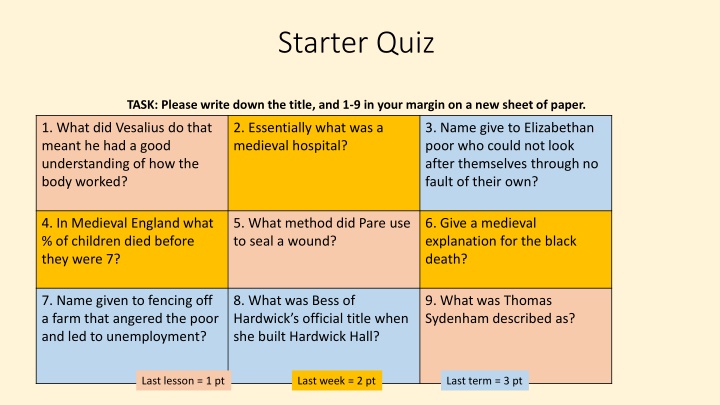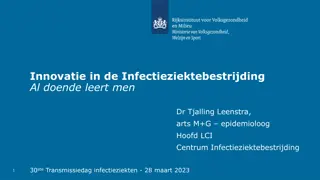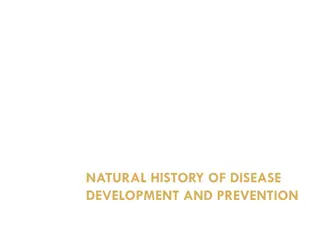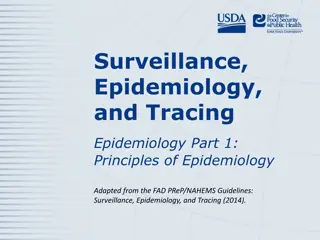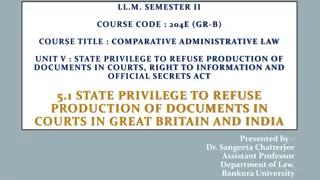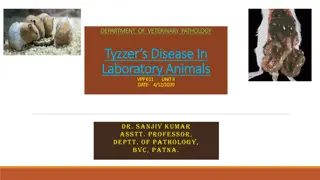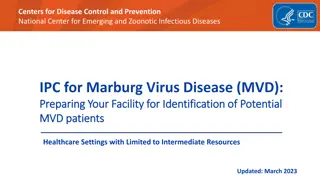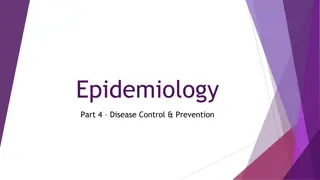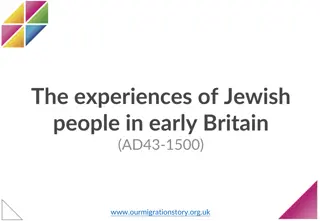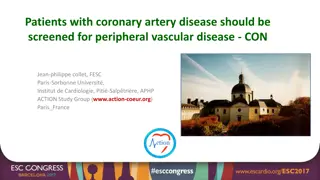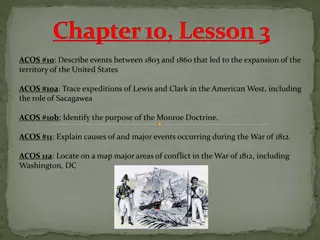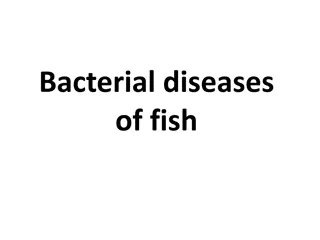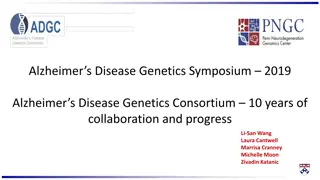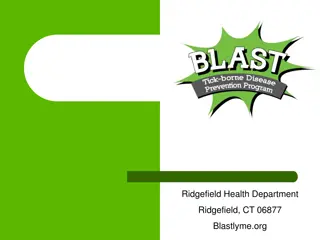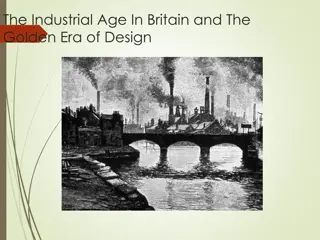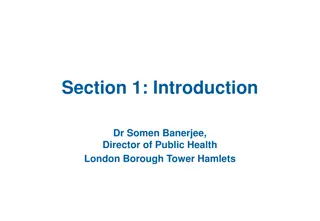Dealing with Disease in Early Modern Britain
Explore the methods of treating disease in Early Modern Britain, including advancements in surgery by Ambroise Pare and Andreas Vesalius, the prevalence of quackery in medicine sales, and the impact of individuals like Lady Johanna St. John and Nicholas Culpeper. Evaluate the effectiveness of disease treatment methods from 1485 to 1800, examining the challenges faced by surgeons, the dubious nature of quack medicines, and the evolving understanding of health and disease during this period.
Download Presentation

Please find below an Image/Link to download the presentation.
The content on the website is provided AS IS for your information and personal use only. It may not be sold, licensed, or shared on other websites without obtaining consent from the author.If you encounter any issues during the download, it is possible that the publisher has removed the file from their server.
You are allowed to download the files provided on this website for personal or commercial use, subject to the condition that they are used lawfully. All files are the property of their respective owners.
The content on the website is provided AS IS for your information and personal use only. It may not be sold, licensed, or shared on other websites without obtaining consent from the author.
E N D
Presentation Transcript
Starter Quiz TASK: Please write down the title, and 1-9 in your margin on a new sheet of paper. 1. What did Vesalius do that meant he had a good understanding of how the body worked? 2. Essentially what was a medieval hospital? 3. Name give to Elizabethan poor who could not look after themselves through no fault of their own? 4. In Medieval England what % of children died before they were 7? 5. What method did Pare use to seal a wound? 6. Give a medieval explanation for the black death? 7. Name given to fencing off a farm that angered the poor and led to unemployment? 8. What was Bess of Hardwick s official title when she built Hardwick Hall? 9. What was Thomas Sydenham described as? Last lesson = 1 pt Last week = 2 pt Last term = 3 pt
Last lesson = 1 pt Last week = 2 pt Last term = 3 pt 1. Carried out dissections 2. A care home 3. Deserving or impotent poor 4. 30% 5. Ligatures (stitches) 6. Corrupt air, 4 humours, sin, planets, the Jews poisoning the water 7. Enclosure 8. Countess of Shrewsbury 9. The English Hippocrates 1. Give yourself a score out of 18 2. In a green pen, you are going to write down which topic you need to develop you understanding of (Early Modern Medicine ; Medieval Medicine; Elizabeth) 3. For next lesson you need to create revision material on that topic. In that next lesson, you will be given a new quiz just on the topic you are revising.
Medicine Lesson 4: Dealing with Disease 1485- 1800 Even better: Good learning: Great learning: Evaluate the effectiveness of dealing with disease in Early Modern Britain Understand the methods of treating disease in early modern Britain Explain progress that was made Key Words:
Understand the methods of treating disease in early modern Britain Surgery: The ideas of Ambroise Pare and Andreas Vesalius started to change surgery in that surgeons had a better understanding of how the body worked and were they became better at sealing wounds. There were however no reliable anaesthetics (pain killers) though some used strong alcohol or opium- some people died when too much was used. How well qualified were most surgeons? Read Changes in the status and training of Surgeons (p37)- produce a bullet pointed answer with factual details Complete the 8 Questions on Pages 37
Understand the methods of treating disease in early modern Britain Medicines and Quackery: Details Impact Lady Johanna St John Nicholas Culpeper Ingredients from around the world Quackery: People selling medicines in the 17th and 18th Centuries. Quacks comes from the Dutch word quacksalver meaning someone who boasts loudly about his cures. Those selling it did not know what the medicines did and if they worked and seemed to it was by accident rather than design. Generally they were seen as con artists who would move on before people realised the medicine did not work. Quack medicines often contained alcohol or opium (or even both, so people would at least feel better in the short term. Produce an advert for Daffy sElixir and then some comments on what it actually did. Complete the think questions on p41
Explain progress that was made New ideas and treatments P41-42 Explain what led to the growth of hospitals- who funded them? How did hospitals start to change? Details Effectiveness Robert Burton (1621) Jane Sharp (1671) Sir John Floyer (1698) George Cheyne (1724) James Lind (1753)
Evaluate the effectiveness of dealing with disease in Early Modern Britain Based on what we have looked at it terms of surgery, medicines and quackery how much progress from medieval times? Based on what we looked at it terms of hospitals and new discoveries how much progress was there from medieval times?
Medicine Lesson 4: Dealing with Disease 1485- 1800 Even better: Good learning: Great learning: Evaluate the effectiveness of dealing with disease in Early Modern Britain Understand the methods of treaty disease in early modern Britain Explain progress that was made Key Words:
